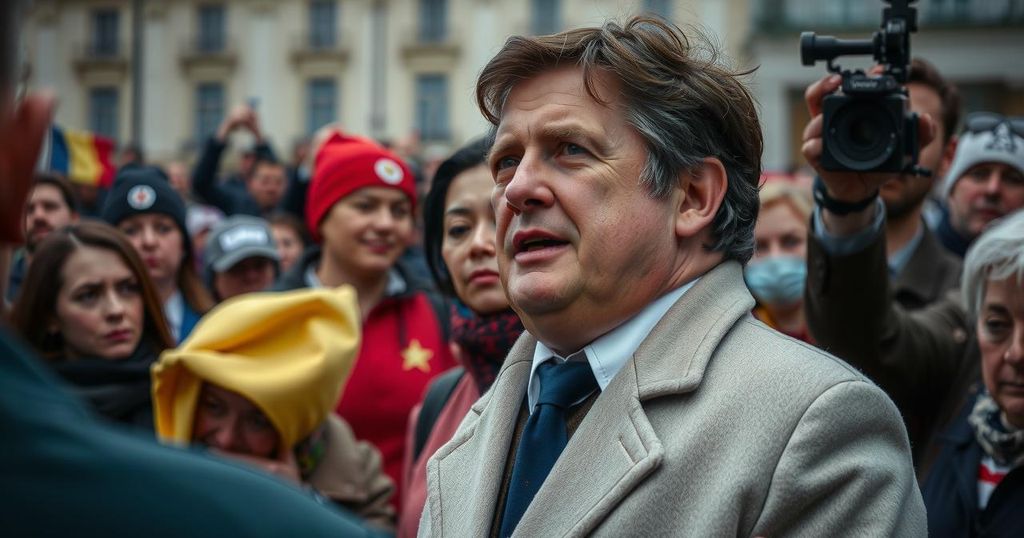Romania’s Presidential Election Annulled: Implications and Future Steps

Romania’s constitutional court annulled the December 6 presidential election due to evidence of voting manipulation, foreign interference, and illegal campaign financing. Nearly 48,000 votes were invalidated, sparking controversy and calls for electoral reform. Allegations include social media manipulation by TikTok, coordinated cyber-attacks, and potential Russian involvement, leading to significant public skepticism towards electoral integrity.
On December 6, Romania’s constitutional court made a historic decision to annul the presidential election, which was set to include a runoff between far-right independent Călin Georgescu and the progressive candidate Elena Lasconi just two days later. This unprecedented ruling followed revelations of systemic voting manipulation linked to social media, illegal campaign financing, and allegations of foreign interference, particularly from Russia. Nearly 48,000 votes were rendered invalid due to the abrupt annulment, raising significant concerns about the integrity of the electoral process and heightening skepticism toward governmental agencies.
The annulment was prompted by President Klaus Iohannis’s declassification of intelligence documents that detailed suspicious activities preceding the election. These documents revealed the activation of 25,000 pro-Georgescu TikTok accounts within two weeks of the first-round vote, with evidence indicating that these accounts were coordinated through a Telegram channel. Furthermore, influencers were reportedly compensated to promote Georgescu subtly, without clarifying their sponsorship, thus violating electoral laws regarding transparent campaign financing.
In addition, allegations emerged that TikTok had provided preferential treatment to Georgescu’s campaign by not adequately labeling promotional content as political, leading to a disproportionate advantage for his candidacy. The European Commission has increased its scrutiny of TikTok, demanding the freezing of data related to electoral processes and increased accountability to curb misinformation.
Alongside these social media strategies, Romania faced over 85,000 cyber-attacks correlating with the election period, suspected to be state-sponsored incursions aiming to disrupt voting and influence public sentiment. The Romanian intelligence cited patterns in these operations reminiscent of Russian tactics used in previous elections in Ukraine and Moldova, implicating foreign interference in the electoral integrity.
The aftermath of the court’s decision has been contentious. Ms. Lasconi claimed this move undermines democratic processes, stating, “Nine million Romanian citizens […] have expressed their preference for a certain candidate. We cannot ignore their will.” In contrasting views, political leaders including Nicolae Ciucă and Marcel Ciolacu have urged for measures to guarantee future electoral fairness. Consequently, the government is now tasked with planning a new election timeline, anticipated for spring 2025, with current President Iohannis remaining in office until his successor is inaugurated, underscoring the pressing need for stronger regulatory frameworks against misinformation and foreign meddling in democratic elections.
The annulled election in Romania has sparked intense discussion around the influence of social media and foreign meddling in democratic processes. The Romanian intelligence services declassified documents revealing extensive manipulation efforts prior to the election, highlighting the role of platforms like TikTok in shaping political narratives. The involvement of various influencers and suspicious funding sources has raised questions about the integrity of the electoral system. In light of this, there is an urgent need for tighter regulations and accountability from social media companies to protect the democratic framework.
In summary, the annulment of Romania’s presidential election underscores critical vulnerabilities within the electoral process that can be exploited through misinformation and foreign interference. The challenges highlighted by this incident call for a reevaluation of existing electoral laws and the operational conduct of social media platforms. As Romania prepares for a new election cycle, the lessons learned may foster a resurgence of public trust in its democracy, contingent on the implementation of necessary reforms to safeguard against similar occurrences in the future.
Original Source: theconversation.com








